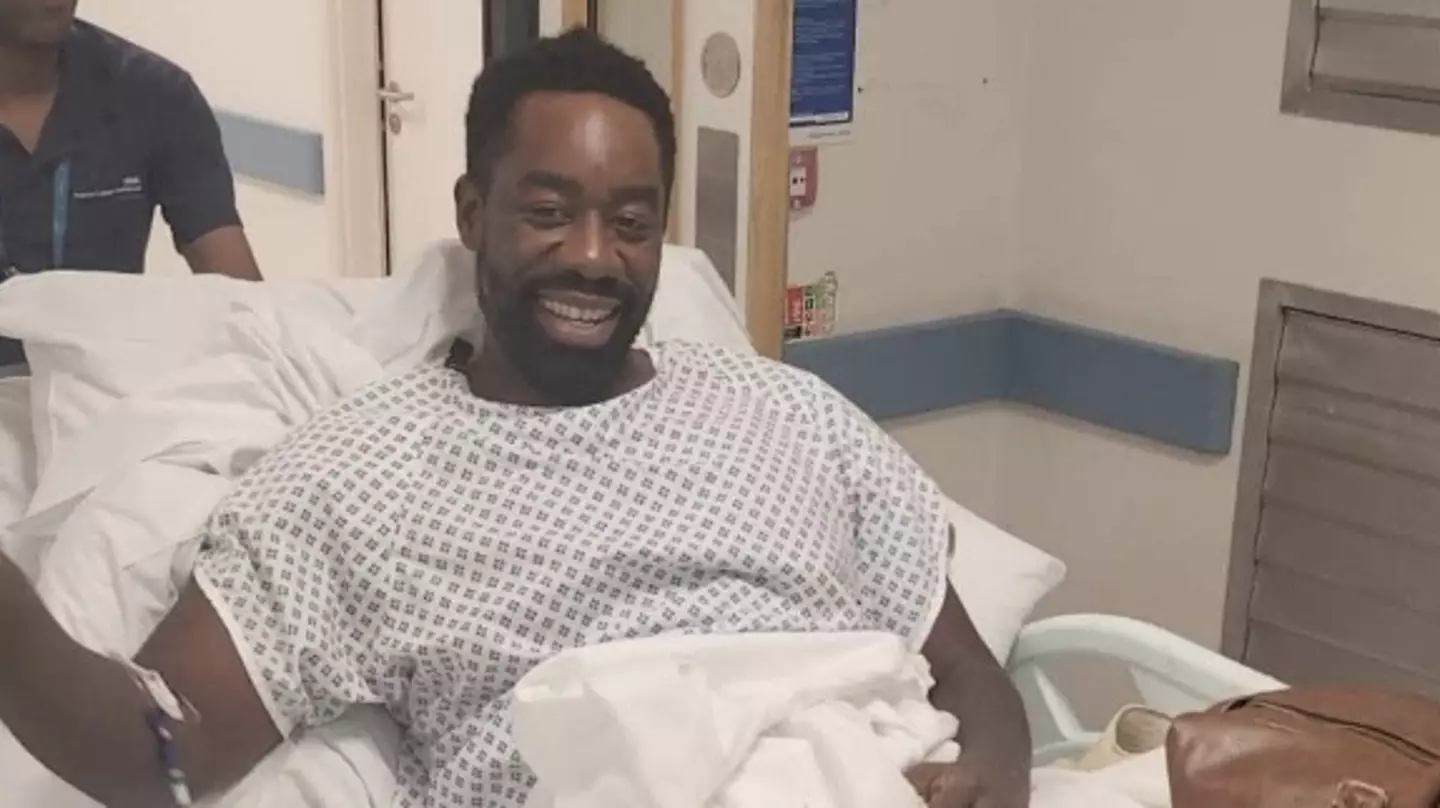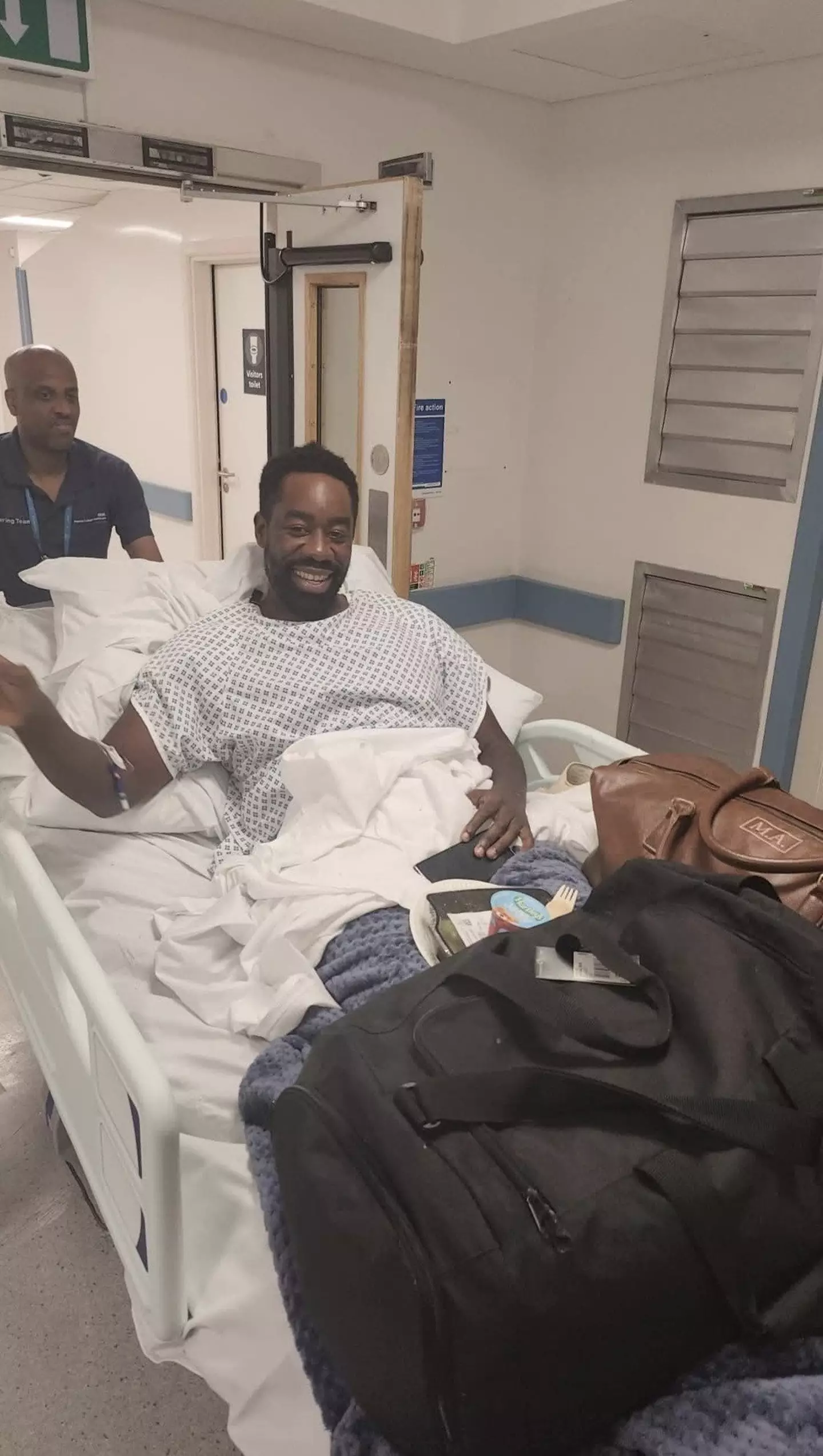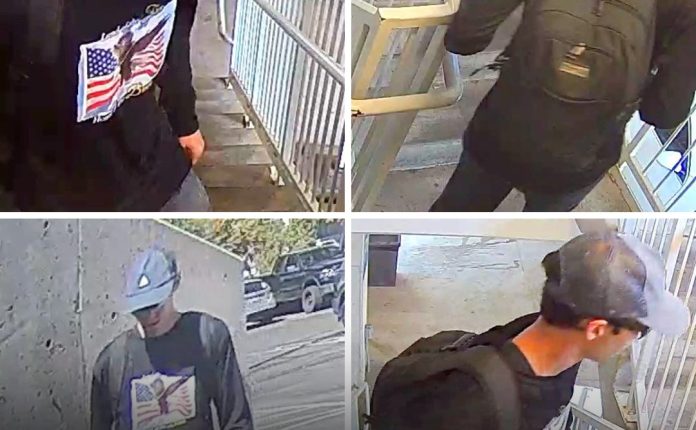
While it’s certainly not a nice topic, a lot of intrigue remains surrounding what happens in the afterlife.
Matthew Allick, 42, is one of those to have experienced such after he started feeling unwell at the end of August 2023 – struggling with shortness of breath and swollen feet.
The Brit was generally fit and healthy, and so assumed his symptoms were just his body adjusting to a new night shift pattern he was working.
However, an ambulance was called for Matthew when he struggled to climb a single step at work.
“I remember I went to take one step and I thought, ‘I can’t climb these stairs,'” Matthew recalled.
“I said to my friend, ‘You need to call an ambulance’. At the time, I wasn’t in pain. But I knew something was wrong.”

The Brit has recalled his experience (SWNS)
Once at hospital, a doctor asked Michael to rank his pain on a scale of one to 10.
He said: “I told him that it had been a zero before but suddenly it was an 11 out of 10. He said that it couldn’t be an 11, and I said, ‘Now it’s a 13’. And then I dropped dead. I had no pulse, no heartbeat. Nothing.”
Matthew had collapsed after a cardiac arrest caused by a pulmonary embolism.
Doctors used a defibrillator and gave him CPR so aggressive that it resulted in internal bleeding. The actor and care line officer was considered dead for several minutes before medics resuscitated him and placed him into a coma.
When Matthew woke up, he was fully conscious and only had issues with his memory. He was able to recall what it was like waking up, however.
“I don’t remember anything from when I was dead,” he said.

Matthew was clinically dead for 10 minutes (SWNS)
“But what I do remember is coming out of the coma and it felt like I had been sleeping. Everything was peaceful. It felt like a peaceful sleep.”
Scans later showed that his heart and lungs had blood clots the ‘size of a cricket ball’ so medics acted quickly and he underwent surgery to remove them.
Doctors couldn’t believe the ultimate recovery Matthew has made, with the Brit later finding out how crucial blood transfusions were to saving his life.
He now wants to raise awareness of the importance of giving blood – especially among Black heritage communities.
Reflecting on his experience, Matthew said: “I’d say I’m 75 percent of what I used to be – I’ll never be completely back to normal as I’ll be on blood thinners for the rest of my life.
“But I’m just so grateful to everyone who supported me and came to see me in hospital every day and encourage me.
“My friends, my family, my kids, and my fiancée at the time all really showed up for me.
“At one point I remember doctors saying there were too many people in the room.
“It just really made me realise how lucky I am to be alive.”
An NHS Blood and Transplant spokesperson added: “Although the blood used to treat Matthew came from a range of donors of different ethnicities, the need for more Black heritage donors to come forward to provide ethnically matched blood is well established.”
Featured Image Credit: SWNS


